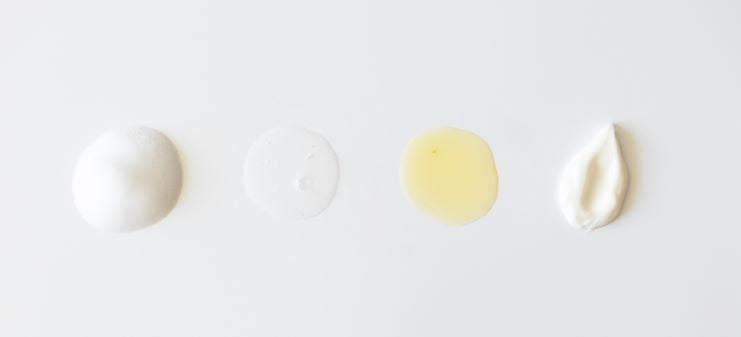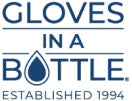
Find the right skincare product
Share
The beauty industry has created a lot of confusion about the difference between lotions, gels, moisturizers, barrier creams, shielding lotions, protective creams etc. Is there even a difference between all these things? And if so, which is best for your skin condition and skin type.
Sample beauty products for facial skin care on white background, above. Cleanser foam, tonic, oil serum essence drop and moisturizer cream smear
Best to start with the various consistencies between products.
What is the difference between lotions, creams and gels?
Lotion
A lotion very simply put is lots of water mixed with some oil. Because of its high water content, it is light-weight and non-greasy. And another plus side is that they are easily absorbed into the skin – which makes them perfect for most skin types.
Cream
Creams are, well, creamier. They have a much higher ratio of oil versus water and therefore tend to be quite heavy and rich. This is usually noticeable in the thicker texture. This makes creams great for dry skin especially during the winter months.
Gels
If you suffer from acne-prone or super oily skin, then a gel is the easy choice. They are water-based and generally oil-free, so they do not clog pores and are a great hydrator for acne-prone skin
Ok, now that we got the texture side squared away – let’s talk about basic benefits.
Moisturizer versus barrier hand cream.
Moisturizers are generally ingredient rich and provide a temporary, instant hydration to your dry hands. They usually feel luxurious and smell wonderful. Although they are wonderful at relieving dry hands, they don’t help in the long term.

Barrier Cream
A great barrier hand cream creates a protective barrier on your skin to stop irritants from being absorbed, and locks in your skin’s own natural oils and moisture. Regular application of a barrier cream will heal recurring symptoms and conditions like eczema, and psoriasis.
